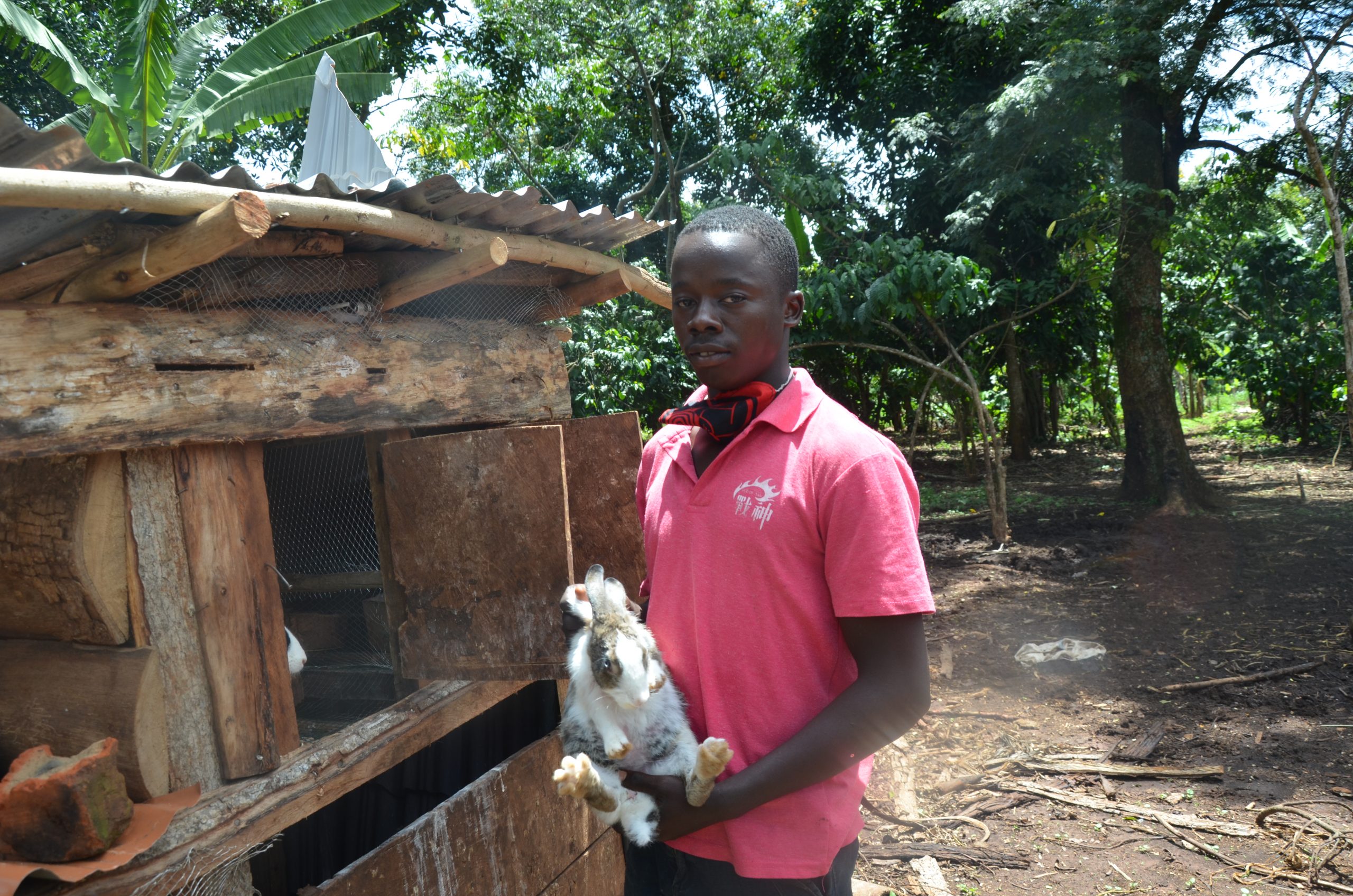Monday, September 27th, 2021 | By

Sserwada a resident of Rwanda village Gogonya parish, Kibiga Sub County in Kiboga district started farming rabbits in July 2020 after schools were closed due to COVID – 19. He started rearing rabbits in order to earn a living and also raise money for his secondary education.
“I was idle at home with nothing to do. This is when decided to start rearing rabbits. While listening to Community Green Radio, I heard a gentleman from Masodde village in Kyankwanzi district talking about rabbits and I got interested,” Sserwada said.
Sserwada says, to get the right skills, he looked for the gentleman called Ssebulime Ronald a known Rabbit farmer in Kyankwanzi district at his farm.
“During training and a visit to his farm, I learnt about hybrid rabbits whereas I was only used to indigenous breeds,” says Sserwada, adding that the hybrids are bigger and have sweeter meat.
Sserwada started off with two rabbits which he got from friend. By September 2021, they had increases to 50 rabbits.
“I had bought one rabbit from my friend and my aunt chased me to take it back since she didn’t like them. But later after the Community Green Radio program I involved her thank God she had also heard the same program and the benefits from farming rabbit,” he said.
Ms.Nagayi Vensus a resident of the same village and aunt to Sserwada said he had denied him an opportunity of earning sum funds from rabbit farming.
“I really thank Community Green Radio for bringing the radio down to the community because if I didn’t listen to the program, I couldn’t let my boy to keep rabbits but after that program and training I decided to provide some piece of land to him,” Nagayi said.
Sserwada’s investment has grown to 2million shillings. He has stock of 50 rabbits.
“Farmers in our village have started benefiting from my rabbits. Rabbit waste is used as organic fertilizer, rabbit urine is good liquid manure for crops and is on high demand in some parts of the country,” said Sserwada.
Sserwada is appealing to youths not to focus on seeking employment but instead start small income-generating activities that do not require huge capital.
“Rabbits multiply as many as six times a year on average and each time can produce eight kittens per litter. This assures one income throughout the year. There is also a high demand for rabbit meat and rabbits are easy to rear and very economical in terms of feeding, as they feed on grass,” said Sserwada.
Challenges
The main challenge he faces is diseases such as ear cankers, swellings, pneumonia and coccidiosis which can be managed if diagnosed early.
Some of the challenges he grapples with are diseases such as Coccidiosis, but he has managed to stem them through good rabbit husbandry practices.
Sserwada says for a farmer to keep rabbits successfully, he must maintain high hygiene standards.
“The cages must be well-ventilated and clean while water containers must be cleaned daily to protect the rabbits from diseases. We encourage farmers to keep a close eye on their rabbits, give them the correct diet, update vaccinations, regular health checks to keep diseases at bay.”
Marketing and sales
The young farmer also sells the rabbits to the local communities and the selling price is determined by the weight of the rabbit. The lowest price a kitten is between 10,000-20,000 Uganda shillings and the old one range between 50, 000 and 80, 000 Uganda Shillings.
Copyright ©2025 Community Green Radio . All Rights Reserved. Designed : Lwegatech